Nutrition Education
Food Access Map

The University of Wisconsin-Madison Division of Extension-Brown County released the virtual NEW Food Access Map. The objective of this map is to highlight places for households to obtain food in Brown, Door, Kewaunee and Manitowoc Counties. The map focuses on these categories: Community Gardens, Stores accepting EBT, Farmers Markets, Food Pantries, Grocery Stores, Cultural Grocery Stores and Meal Programs.
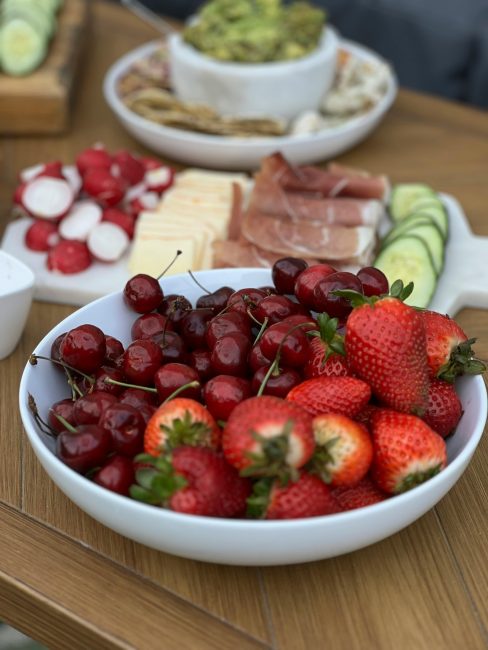
Farmers Markets
The Senior Farmers Market Nutrition Program provides seniors with fresh, locally grown produce, while supporting Wisconsin farmers, markets, and farm stands.
FoodShare benefits can also be used at many farmers markets to buy fresh fruits and vegetables.
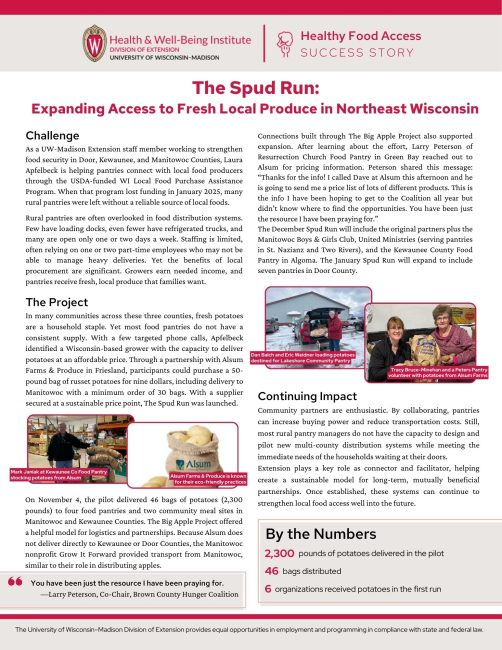
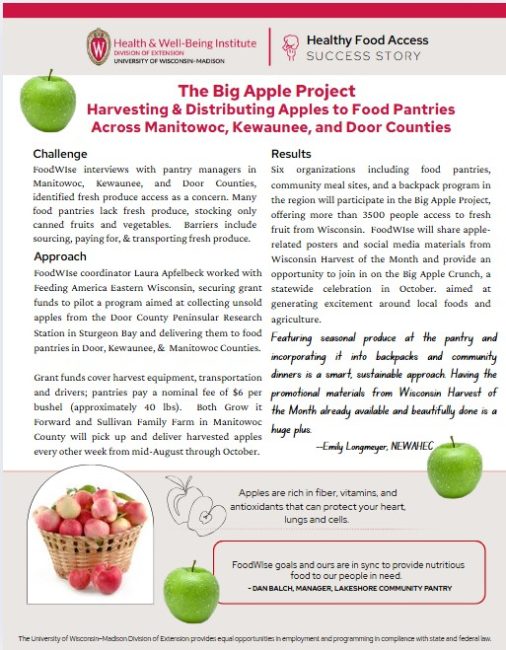
FoodShare
Protect Your FoodShare Benefits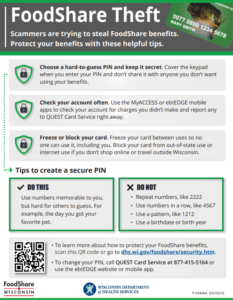
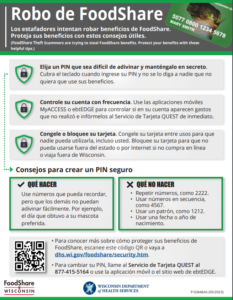
Feeding America Eastern Wisconsin has received multiple reports of scammers stealing FoodShare benefits this week. If you have guests reporting their benefits stolen due to card skimming, cloning, or related activities using federal funds, they can report their loss and potentially have those benefits replaced.
To report stolen benefits, you can use the Fraud Hotline or file a complaint with the Office of the Inspector General.
- Fraud Hotline: 1-877-865-3432
- Report Fraud Form
- Report Public Assistance Fraud
Below are additional resources on keeping your FoodShare benefits safe:
- Choose a hard-to-guess PIN. Don’t use repeating numbers, like 2222, numbers in a row, like 4567, or a pattern such as 1212. Don’t use a birth date or birth year.
- Keep your PIN secret. Cover the keypad when you enter your PIN. Do not share your PIN with anyone you don’t want using your benefits to buy food for your FoodShare household.
- Check your account often. Use the MyACCESS mobile app or the ebtEDGE website or mobile app to check your account often for unauthorized charges. Change your PIN right away if you spot any suspicious charges.
- Freeze your card between uses with the ebtEDGE website or mobile app. When your card is frozen, you and anyone else will be unable to use it. You will need to unfreeze it to make purchases again.
- Block your card from being used on the internet if you don’t shop for groceries online. You also can block out-of-state transactions if you are not traveling outside of Wisconsin.
- Report lost or stolen cards immediately to QUEST Card Service at 877-415-5164.
Health News from Around Wisconsin
Resources
Can I use my ceramic cooktop stove for canning?
Food Safety, Food Business Development, Meat HACCP
Minimum Cooking Temperatures for Food Safety
Oops… Remaking Jams and Jellies
Play it Safe – Safe Changes and Substitutions to Tested Canning Recipes
Preserve It Fresh, Preserve it Safe
Safe Food Handling and Preparation
Quick Tips for Farmers’ Market Vendors
Whole Grains: Good for Your Heart!
by Jace Purdy, FoodWIse Nutrition Educator
You’ve probably been told to eat whole grains. But what are they? Why are they important? Where are they found in foods?
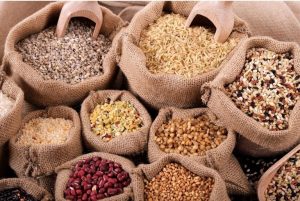
What is a Whole Grain?
Whole grains are whole because we eat the whole thing, the whole piece of rice or corn or wheat OR we grind the whole seed into flour using all parts. Whole grain products have more fiber and important nutrients, such as B Vitamins, iron, folate, selenium, potassium, and magnesium.
Where do we find Whole Grains?
You can find whole grain versions of rice, bread, cereals, flour, and pasta on most grocery store shelves. Check the label. If the first ingredient is whole grain or “Whole Wheat Flour,” that’s good. The key word is WHOLE. Other common whole grains include brown rice, oatmeal, corn, popcorn, and quinoa.
Why do we want Whole Grains?
Whole grains are naturally higher in fiber and key vitamins and minerals. Fiber helps you feel full and satisfied, so you can maintain a healthy body weight. Diets rich in whole grains are linked to a lower risk of heart disease, diabetes, and certain cancers. Try making one simple swap: whole wheat bread instead of white, brown rice instead of white, or popcorn instead of potato chips. Enjoy whole grain foods AND the health benefits.
Recipes using Whole Grains:
Resources:
Non-discrimination Statements
English: USDA-Nondiscrimination-Statement English
Spanish: USDA-Nondiscrimination-Statement-Spanish




